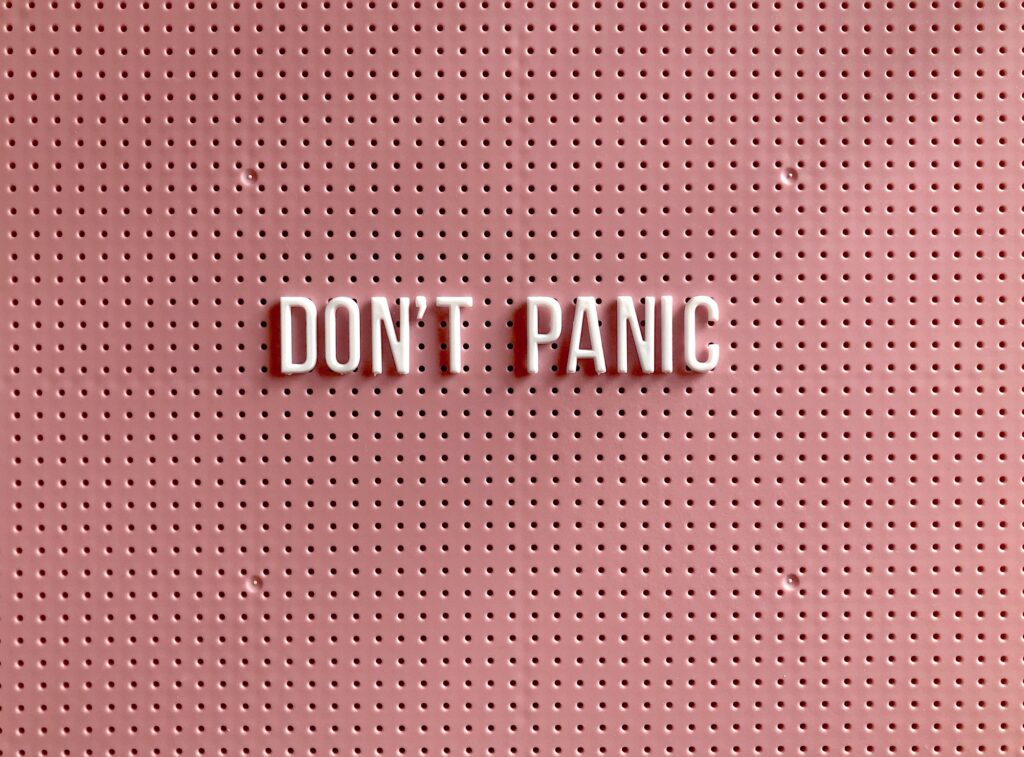6 Signs Someone Grew Up with Anxiety

Disclaimer: This article is to create awareness for the general public, not a substitute for professional diagnosis.
Psych2goers, have you noticed the change in behaviour in kids from the younger generation? There is almost a drastic change in these children’s lives that they are less involved in play and physical activity, but are more involved in sedentary screen time activities such as playing video games and excessive usage of social media.
Anxiety among children is on the rise. According to a report published by the Centers for Disease Control and Prevention, 7% of children aged 3 to 17 have been diagnosed with anxiety disorder. The types of anxiety which are commonly experienced by the children include specific phobias or a more broad-based anxiety disorder such as separation anxiety, social anxiety, and generalized anxiety disorder (Psychology Today, n.d.).
So, do you want to know what are the signs someone grew up with anxiety? Let’s delve into them together:
- You live in a chaotic environment

You are a 10-year-old girl, your biological father and mother have recently just got divorced. Since then, you live with your mother and her lover. Her lover is a drug addict and an alcoholic, he always abuses your mother physically and emotionally.
Psych2goers, do you know, children who live in tumultuous homes and are surrounded with strained family interactions, are more susceptible to anxiety?
What are considered painful and dysfunctional family environments (Hall, 2017)?
- Aggression: You are belittled, dominated, lied, and controlled by your caregivers.
- Limited affection: You do not receive physical and verbal affirmations of love, empathy, and time spent together.
- Neglect: No attention paid to another and discomfort around family members.
- Addiction: Parents having compulsions relating to work, drugs, alcohol, sex, and gambling.
- Violence: Threat and use of physical and sexual abuse.
Children need to feel that they belong. When they are living in a chaotic household and the adults are not open and intrigued in the child’s experience, the children may feel that there is no safe person that they can go to for support. The emotionally unstable and untrustworthy environment causes the children to develop certain defense strategies to maintain their safety and keep themselves intact. However, when they apply this defense strategy for a prolonged period of time and are exposed to overwhelming stressors for far too long, they may develop severe forms of anxiety (Coller, 2019).
2. You have issues of separation
You have a 5-year-old son who is going to enter kindergarten soon. In the first day of school, he cries and refuses to let you go and leave him.
Have you guys ever heard of separation anxiety? This term refers to excessive fear or worry about separation from home or an attachment figure. It is actually a normal stage in an infant’s development, and helps children understand relationships and master their environment. When a child turns 2 years old, separation anxiety will normally end, as they start to realize that an attachment figure may be out of sight now but will return later. What is the criteria to say that a child has developed a separation anxiety disorder? This can be determined by looking at the developmental growth of the child. When the level of anxiety surpasses their developmental level, they most probably have separation anxiety disorder. Examples of situation that a child can be suspected to have separation anxiety disorder includes (Psychology Today, n.d.):
- Be reluctant to go to sleep without being near a major attachment figure
- Refuse to attend camp or have a sleepover at a friend’s home
- Need someone to be with them when they go to another room in their house
3. You experience bodily symptoms

You are selected by your school teacher to become an MC for a school program. Just before entering the stage, you complain of tummy aches, nausea, and your muscle becomes tense.
People with anxiety may also experience physical symptoms such as (Raypole, 2019):
- Stomach pain, nausea, or digestive trouble
- Headache
- Insomnia or other sleep issues
- Weakness or fatigue
- Rapid breathing or shortness of breath
- Pounding heart or increased heart rate
- Sweating
- Trembling or shaking
- Muscle tension or pain
4. You constantly worry and having negative thoughts have been the norm
You are a chronic worrier. You always report yourself being tense and find it hard to relax and “switch off”. You find it difficult to fall asleep and stay asleep throughout the night due to your “noisy” brain.
Psych2goers, it is actually normal to worry from time to time. Perhaps you are worried about things like your health, finance, and due to some family issues. However, when your worry becomes excessive and uncontrollable, even when there is little or no reason to worry about them, there is a high chance that you have anxiety, or more specifically generalized anxiety disorder (Stansfeld et al., 2016).
5. You always found it hard to concentrate

You are in a lecture hall, listening to a lecture by your Professor. You found that it is hard to concentrate on what is taught in the lecture. Sometimes, it is also hard for you to focus on your conversation with your friends, your mind always wanders to the future, and you tend to always ask your friends to repeat what they are saying.
Psych2goers, do you know about episodic foresight? This is defined as “the mental construction of potential events and the ability to flexibly organize current action in light of such anticipations” (Suddendorf & Moore, 2011). You are able to make careful preparation for threats, opportunities, and circumstances and to plan and control important aspects of the future when you have an episodic foresight. However, when this is done in excessive dosage and when you start to constantly ruminate about potential future events, you may have a high chance to develop anxiety and depression (Roepke & Seligman, 2015).
6. You are always tired
You wake up from a good 8 hours of sleep after a long work shift. However, you feel ache all over your body and you still feel very exhausted. You feel that you have a lack of energy and a lack of motivation to do anything. You don’t want to do your homework. You are tired all the time.
It is actually a very human thing to be tired and experience some form of fatigue, especially after doing certain strenuous activities. However, for people with anxiety, even small and simple acts such as making a cup of tea feel like they are mentally struggling through a quicksand.
Anxiety pushes your body to be in survival mode, causing you to be in fight or flight mode. You are alert all the time, and your body is flooded with energy. However, when this period of anxiety finishes, your adrenaline usually runs out. This condition is known as adrenal fatigue, causing you to feel drained.
Final thoughts
According to a YouTube interview with a triple board certified neuropsychologist, Dr. Judy Ho, there are two things to look for in distinguishing anxious traits and anxiety disorder in children (MedCircle, 2021):
- Is it clinically impairing them on a variety of tasks in their daily life (is it impairing them in school? Is it stopping them from developing good friendships? Is it hard for them to function in the home? Is it hard for them to do self-care activities (like get up, get dressed, shower, put their backpack together)?
- Does the individual perceive a huge amount of distress? If they themselves said “I’m upset by my own anxiety. I’m upset that my stomach hurts so much. I’m upset that I can’t go to school.”
If the answer “Yes” to either of these two things, then it is therefore warranted to bring them to seek treatment from a licensed mental health provider.
REFERENCES
Carey, E., Devine, A., Hill, F., & Szűcs, D. (2017, March 28). Differentiating anxiety forms and their role in academic performance from primary to Secondary School. PLOS ONE. Retrieved September 30, 2021, from https://journals.plos.org/plosone/article?id=10.1371%2Fjournal.pone.0174418.
Coller, N. (2019, July 24). Why it’s so hard to build healthy relationships after growing up in Chaos. Psychology Today. Retrieved September 30, 2021, from https://www.psychologytoday.com/us/blog/inviting-monkey-tea/201907/why-its-so-hard-build-healthy-relationships-after-growing-in-chaos.
Grillo, L. (2016, March 2). A possible role of anhedonia as common substrate for depression and anxiety. Depression Research and Treatment. Retrieved September 30, 2021, from https://www.hindawi.com/journals/drt/2016/1598130/.\
MedCircle. (2021, September 4). 6 Signs Someone Grew Up with Anxiety | MedCircle [Video]. YouTube. https://www.youtube.com/watch?v=-5XKeaSjZq4
Psychology Today. (n.d.). Children and anxiety. Psychology Today. Retrieved September 30, 2021, from https://www.psychologytoday.com/us/basics/anxiety/children-and-anxiety.
Psychology Today. (n.d.). Separation anxiety. Psychology Today. Retrieved September 30, 2021, from https://www.psychologytoday.com/intl/conditions/separation-anxiety.
Raypole, C. (2019, March 15). Physical symptoms of anxiety: What your body may be telling you. Healthline. Retrieved September 30, 2021, from https://www.healthline.com/health/physical-symptoms-of-anxiety#anxiety.
Stansfeld, S., Clark, C., Bebbington, P., King, M., Jenkins, R., & Hinchliffe, S. (2016). Chapter 2: Common mental disorders. In S. McManus, P. Bebbington, R. Jenkins, & T. Brugha (Eds.), Mental health and wellbeing in England: Adult Psychiatric Morbidity Survey 2014. Leeds: NHS Digital.
Roepke A. M. , & Seligman M. E. P. (2015). Depression and prospection. British Journal of Clinical Psychology. doi:10.1111/bjc.12087
Suddendorf T. , & Moore C. (2011). Introduction to the special issue: The development of episodic foresight. Cognitive Development, 26, 295–298. doi:10.1016/j.cogdev.2011.09.001






Responses